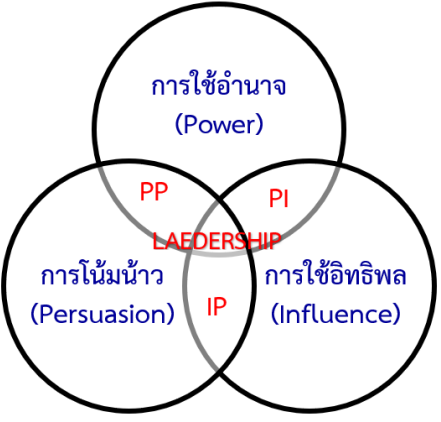Leadership: Concepts, Theories, and Elements
Main Article Content
Abstract
Leadership as an influence process means that it is not a trait or an ability that resides in the leader, but rather an interactive event that occurs between the leader and the followers. Influence is central to the process of leadership because leaders affect followers.
Leaders direct their energies toward influencing individuals to achieve something together. Stressing common goals gives leadership an ethical dimension because it lessens the possibility that leaders might act toward followers in ways that use coercion or are unethical.
Article Details
References
กวี วงศ์พุฒ. (2550). ภาวะผู้นำ. พิมพ์ครั้งที่ 5. กรุงเทพฯ : ศูนย์ส่งเสริมวิชาชีพ.
ทองใบ สุดชารี. (2549). ภาวะผู้นำ: กลไกขับเคลื่อนองค์การแห่งการเรียนรู้. อุบลราชธานี : คณะบริหารธุรกิจและการจัดการ.
ธวัช บุญยมณี. (2550). ภาวะผู้นำและการเปลี่ยนแปลง. กรุงเทพฯ: โอเดียนสโตร์.
รังสรรค์ ประเสริฐศรี. (2544). ภาวะผู้นำ. กรุงเทพฯ : ธนธัชการพิมพ์.
รัตติกรณ์ จงวิศาล.(2547). ภาวะผู้นำการเปลี่ยนแปลง (Transformational Leadership) ในยุคแห่งการเปลี่ยนแปลง. http:www.siamhrm.com/? name=management&file=reafnews&max=187.
วิโรจน์ สารรัตนะ. (2556). แนวคิด ทฤษฎี และประเด็นเพื่อการบริหารทางการศึกษา. พิมพ์ครั้งที่ 8. กรุงเทพฯ : ทิพยวิสุทธิ์.
ศักดิ์ไทย สุรกิจบวร. (2549). ภาวะผู้นำของผู้บริหารมืออาชีพ. กรุงเทพฯ : สุวีริยาสาส์น.
สมยศ นาวีการ. (2546). การบริหารและพฤติกรรมองค์การ. พิมพ์ครั้งที่ 3. กรุงเทพฯ : ตะวันออก.
สัมฤทธิ์ กางเพ็ง และสรายุทธ กันหลง. (2559). โมเดลภาวะผู้นำทางหลักสูตรในศตวรรษที่ 21. เอกสารประกอบการสอนรายวิชา 210 208 การบริหารหลักสูตรและการสอน มหาวิทยาลัยมหาจุฬาลงกรณราชวิทยาลัย.
สัมฤทธิ์ กางเพ็ง. (2557). ภาวะผู้นำแบบบริการ: แนวคิด ทฤษฎีและงานวิจัย. มหาสารคาม: อภิชาติการพิมพ์.
สุเทพ พงศ์ศรีวัฒน์. (2550). ภาวะผู้นำ: ทฤษฎีและปฏิบัติ. กรุงเทพฯ : บุคส์ลิงค์.
เสริมศักดิ์ วิศาลาภรณ์. (2546). พฤติกรรมผู้นำทางการศึกษา. กรุงเทพฯ: ไทยวัฒนาพานิช.
Bobic, M. P. & Davis, W. E. (2003). A kind word for theory x: or why so many newfangled management techniques quickly fail. Journal of Public Administration Research and Theory, 13(3), 239–264.
Daft, R.L. (2002). The Leadership Experience. 2nd ed. Fort Worth, TX : Harcourt College.
Daft, R.L. (2005). The Leadership Experience. 3rded. Mason, OH : Thomson South-Western.
DuBrin, A. J. (2010). Principles of Leadership. 6th ed. Canada: South-Western, Cengage Learning.
Howell J.P. and Costley D.L. (2005). Understanding Behaviors for Effective Leadership. New Jersey: Prentice-Hall.
Hughes, R.L; Ginnett, R.C; and Curphy, G.J. (2012). Leadership: Enhancing the Lessons of Experience. 7th ed. New York: McGraw-Hill.
Koontz, H. and Weihrich. H. (1988). Management. New York : McGraw –Hill.
Northouse, P. G. (2017). Introduction to leadership: concepts and practice. 4th ed. Thousand Oaks, CA: Sage
O’Leary, E. (2000). 10 minute Guide to Leadership. 2nd ed. Indianapolis, IN : Pearson Education.
Polleys, M. S. (2002). One University’s Response to the Anti-leadership Vaccine: Developing Servant Leaders. Journal of Leadership Studies, 8(3), 117-130.


